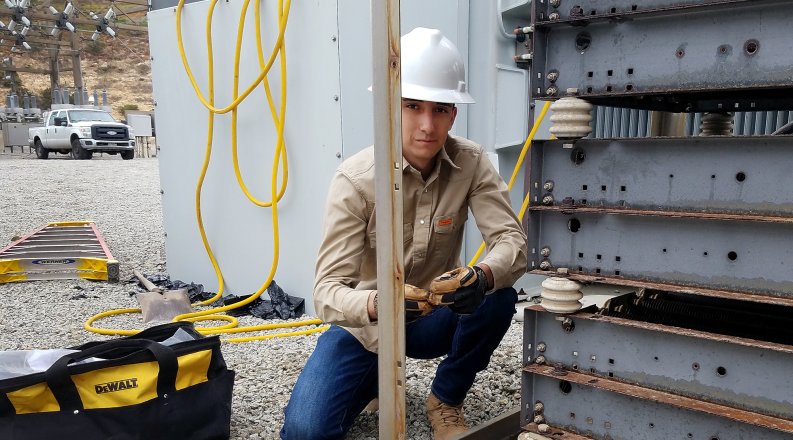By Sherry DiBari
Kyle Hernandez's 7th-grade engineering class might have been where it all started.
"The class had activities and competitions that drove me to understand the inner workings of our world through the eyes of physics," he said.
A few years later - in high school - Mr. Hughes, a teacher at T.C. Williams High School in Alexandria, Virginia, helped reinforce Hernandez's focus on engineering.
"He allowed me to develop this curiosity in his electrical engineering classes and it showed me the limitless applications that electrical engineers work with," Hernandez said.
Hernandez, who graduated fall '21 with a bachelor's degree in electrical engineering from Old Dominion University's Batten College of Engineering and Technology, is appreciative of those who helped guide his academic journey.
Hernandez's father, Eric Hernandez, never earned a degree, but he did impart life-long lessons to his son.
"His knowledge in the field [of radio systems in the military] allowed him to become a vital asset to private companies and eventually his own," Hernandez said. "The dedication to his job showed the level of character required to be an engineer."
He credits his mother, Nancy Bolling, with his ability to follow through on his decision to become an electrical engineer.
"Her motivation and lessons of patience led me to develop the characteristics of a hard worker," he said.
After high school, Hernandez attended Northern Virginia Community College and then transferred to ODU, where he was inspired by Sylvain Marsillac, professor of electrical and computer engineering.
"Dr. Marsillac's sheer knowledge and understanding of the field shows the importance of involvement, not just attendance, in whatever you decide upon," he said. "It cannot be stressed enough that "bad" jokes and a relaxed environment inspires students."
Marsillac, in turn, recognized Hernandez's academic and leadership skills.
"Kyle's intellectual aptitudes are exceptional and allowed him to make the class more interesting for everyone as he asked very pertinent and relevant questions," Marsillac said.
"His leadership also translated well during lab sessions, and even courses, as he often helped other students understand some of the course content by explaining the topic from his perspective," he added.
Hernandez used some of those skills, plus follow-through and determination learned from his parents, to snag a coveted internship this summer.
After applying for numerous internships, and receiving just as many rejection letters, he was offered an interview with United States Air Force Civilian Service.
"Following the interview, I received an offer for a paid GS-05 electrical engineering intern position on the other side of the United States at the Vandenberg Space Force Base in California," Hernandez explained.
"I accepted the position and scraped every dollar I could earn to make it possible," he added.
During the internship, Hernandez was a part of an engineering team responsible for maintaining the on-base electrical grid.
The work included updating the base's electrical grid single line diagrams, providing maintenance to substations, analyzing fault data and implementing high voltage relays.
"Best of all, I was able to experience launches since I worked as an emergency support engineer for countdowns," he said.
After graduation, Hernandez won't have much time to relax. He has already accepted a position at Northrop Grumman as an associate hardware engineer.



